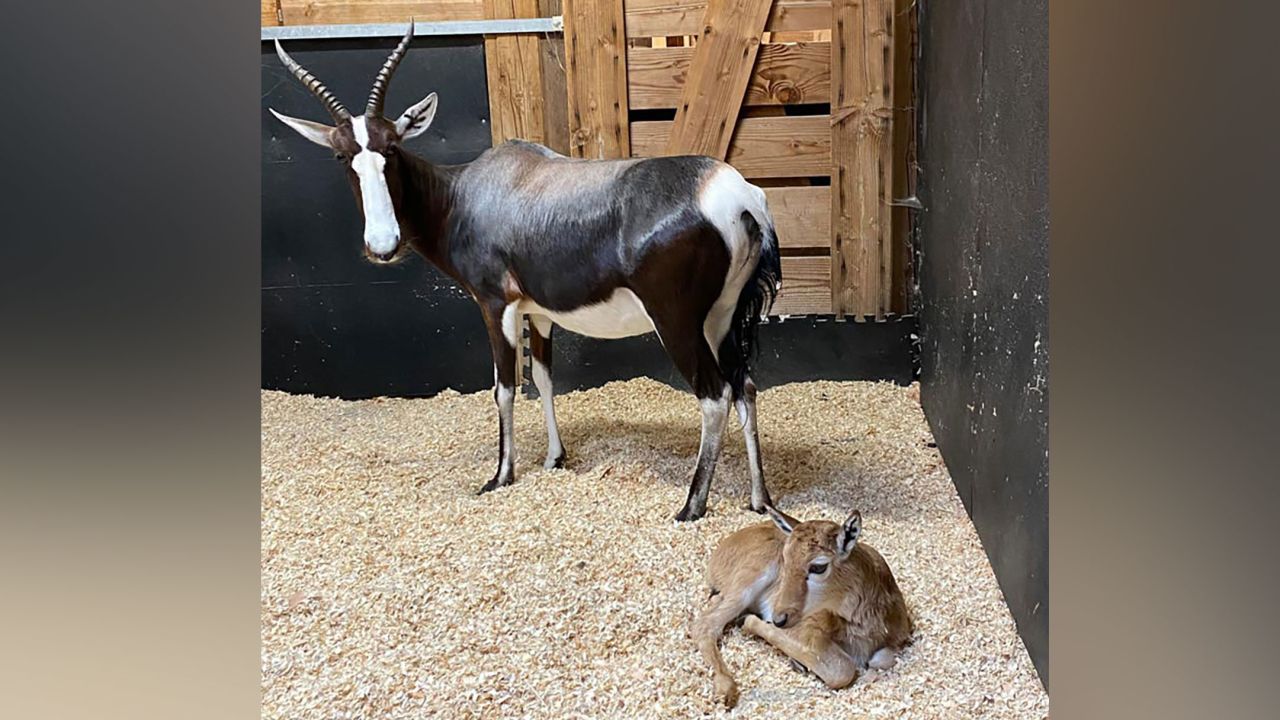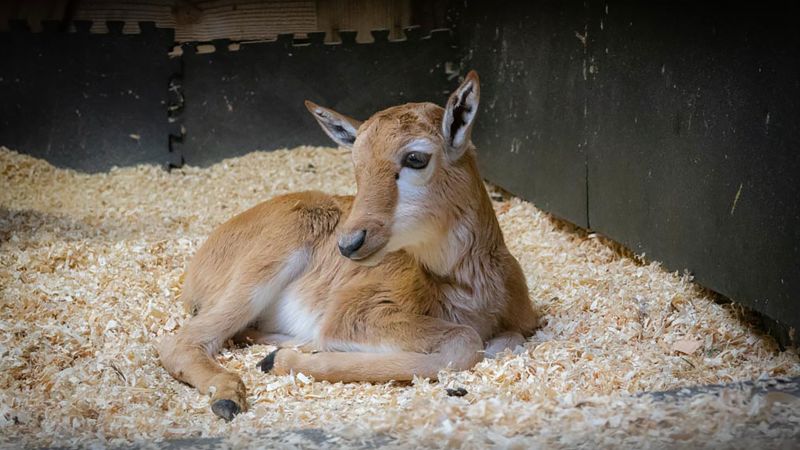CNN
—
The newest addition to the Oregon Zoo is adorable, and it’s helping boost the population of a once-endangered species.
A baby bontebok was born at the Zoo April 1 to Winter, his 8-year-old mother, according to a news release from the Oregon Zoo.
The bontebok is a species of grazing antelope native to the coastal plains of northwestern South Africa, according to the zoo’s website. But after being hunted to near extinction in the early 20th century, the herbivores are now only found in zoos, farms, and game preserves.
The yet-unnamed calf weighs just around 18 pounds and appears healthy, the news release explained. The baby received supplemental feedings and a plasma transfusion because he did not start nursing immediately after birth. He seems to have bounced back, the zoo said.
“We gave him a couple supplemental bottle feedings and then returned him to mom,” said Kelly Gomez, who oversees the zoo’s Africa section, in the release. “And then overnight, he was nursing just fine. He’s a sturdy little guy, and quite handsome.”
Gomez described the baby boy as “living proof of the impact people can have if we work together for wildlife.”
“A couple hundred years ago, there were only 17 bontebok left on the planet, and the species was headed for almost certain extinction,” she said in the release.

The antelopes were overhunted by Dutch settlers in southern Africa during the 18th and 19th centuries who viewed them as pests, according to the zoo.
But the bontebok is distinct from other antelopes in one crucial way: They are unable to jump. Because of this, “some sympathetic farmers” were able to safely enclose the 17 bontebok still alive in a fenced property in 1837, says the zoo.
In 1931, Bontebok National Park was established in South Africa and the species began to slowly rebound.
Today, bontebok are categorized as “vulnerable” by the International Union for the Conservation of Nature. There are an estimated 2,500 to 3,000 of the antelope.
“It’s an incredible conservation story,” Gomez said in the release. “And hopefully, we can inspire more successes like this for the future.”


